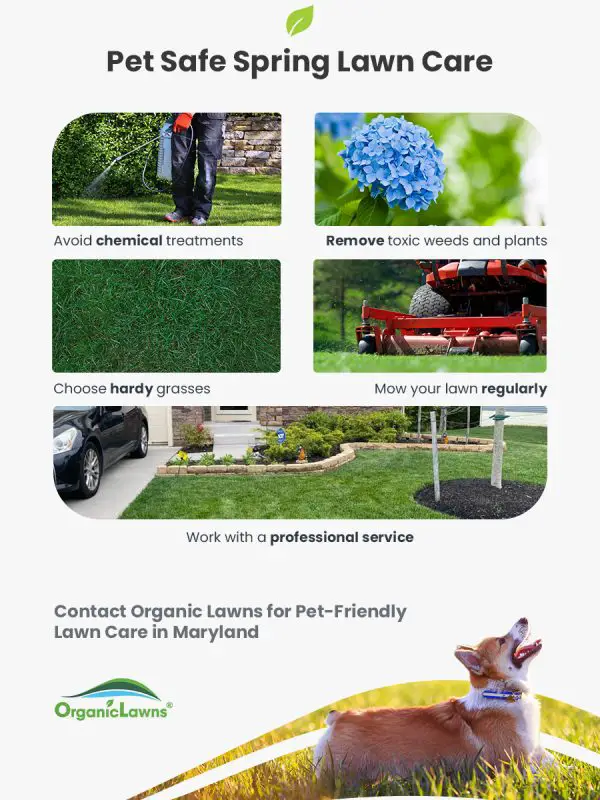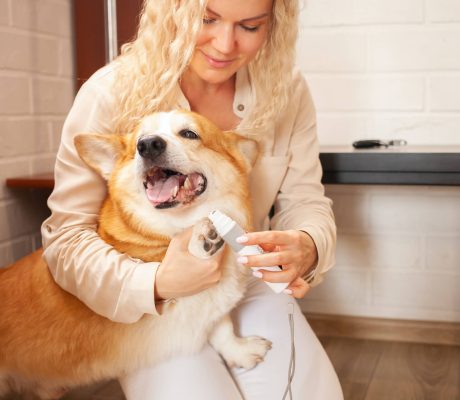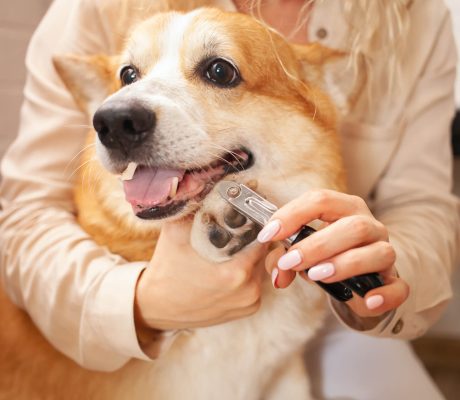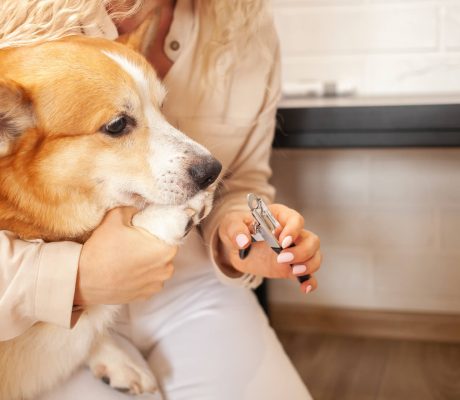For dog-friendly lawn care, use pet-safe fertilizers and avoid toxic chemicals. Create a safe environment for your furry friends to play and roam.
A well-maintained lawn provides a clean and enjoyable space for dogs to run and play. By choosing dog-friendly lawn care methods, you can ensure the health and safety of your pets while maintaining a beautiful outdoor area for the whole family to enjoy.
Let's explore some effective strategies for keeping your lawn lush and green while prioritizing the well-being of your canine companions. Whether you're a pet owner or a professional landscaper, implementing dog-friendly lawn care practices is beneficial for both the environment and the furry members of your household.
Introduction To Dog-friendly Lawn Care
Achieve a lush, dog-friendly lawn with these simple tips. Use pet-safe fertilizers and pesticides to keep your yard healthy and safe for your furry friends. Regularly clean up pet waste and consider using grass seed that's durable and resistant to heavy paw traffic.
The Importance Of A Safe Yard
Having a safe yard is crucial for your dog's well-being. Toxic chemicals in traditional lawn care products can harm pets. Natural alternatives are safer and more pet-friendly.
Balancing Pet Fun With Lawn Maintenance
Maintaining a lush lawn while keeping it safe for your dog is a challenge. Regular grooming and pet-friendly products are key. Create designated play areas to protect the rest of the lawn.
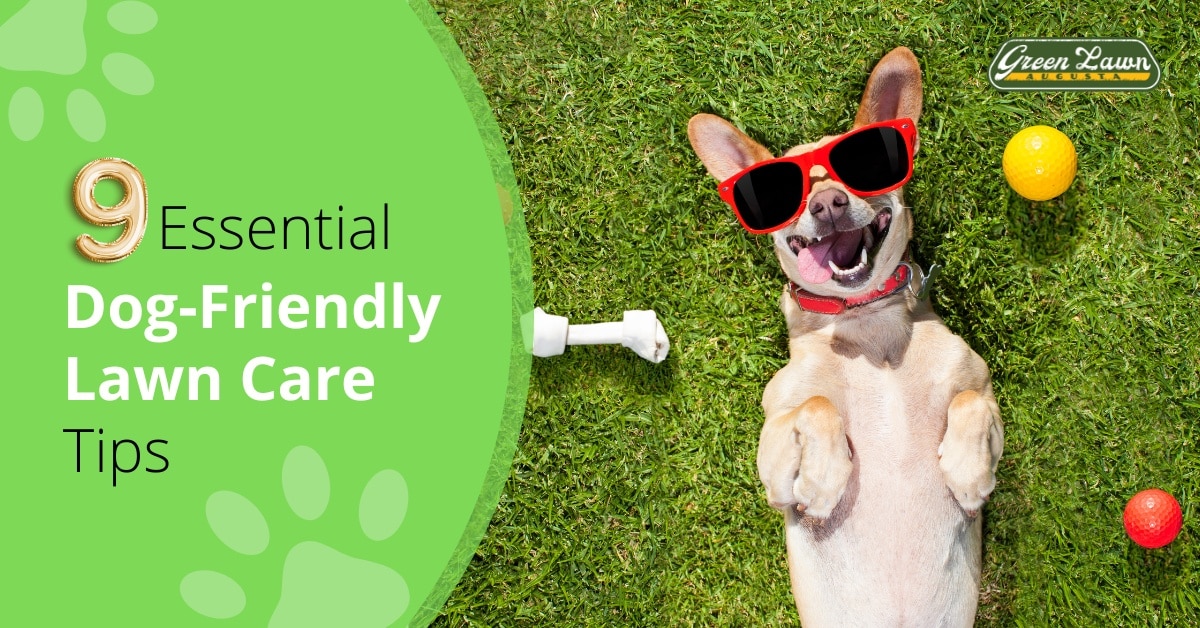
Credit: greenlawnaugusta.com
Choosing The Right Grass
For dog-friendly lawn care, choosing the right grass is crucial. Opt for durable, low-maintenance grass varieties like Bermuda grass or fescue, which can withstand pet traffic and provide a safe and comfortable outdoor space for your furry friend. Regular maintenance and proper watering are also essential for a healthy, dog-friendly lawn.
If you have a furry friend at home, maintaining a healthy lawn can be challenging. You want a lush, green lawn that your dog can play on without worrying about their health and safety. Choosing the right grass is the first step towards a dog-friendly lawn. Here are some things to keep in mind when selecting the right grass for your yard.
Tough Grass Varieties For High Traffic
If your dog loves to run and play, you need grass that can withstand high traffic without getting damaged. Bermuda grass, zoysia grass, and Kentucky bluegrass are some of the toughest grass varieties that can handle heavy foot traffic and pet activities. These grasses have strong and deep root systems that make them more resilient to wear and tear. They also recover quickly from damage, making them ideal for dog owners.
Comfort For Canine Paws
Dogs love to walk, run, and play on the grass, but not all grasses are comfortable for their paws. Some grass varieties can cause irritation, allergies, or injuries to your dog's paws. To ensure your dog's comfort, choose grasses with fine blades and a soft texture. Perennial ryegrass, fescue, and St. Augustine grass are some of the grass varieties that are gentle on your dog's paws and provide a comfortable surface for them to play on.
Choosing the right grass for your lawn is crucial for your dog's health and safety. You want a grass variety that can withstand high traffic, recover quickly from damage, and provide a comfortable surface for your furry friend. With these tips in mind, you can create a dog-friendly lawn that both you and your dog will love.
Safe Lawn Treatments
Ensuring a lush, green lawn doesn't have to come at the expense of your furry friends' well-being. Safe lawn treatments prioritize the health and safety of your pets, offering effective alternatives to traditional chemical-laden products.
Organic Fertilizers And Your Pet
Organic fertilizers are safe and beneficial for both your lawn and your pet. They provide essential nutrients without harmful chemicals, ensuring a healthy environment for your furry companions to roam and play.
Pet-friendly Weed Control
When tackling weeds, opt for pet-friendly solutions that keep your lawn pristine without posing risks to your pets. Natural weed control methods are effective and gentle on your furry friends' paws.
Pest Control: Keeping It Safe For Dogs
When it comes to maintaining a dog-friendly lawn, one of the key considerations is pest control. It's important to keep your yard free from pests without exposing your furry friends to harmful chemicals. Here, we'll explore natural pest deterrents and chemicals to avoid, so you can ensure a safe and healthy environment for your dogs.
Natural Pest Deterrents
Using natural pest deterrents can help keep your lawn free from unwanted critters while being safe for your dogs. Some effective natural options include:
- Planting pest-repelling plants such as marigolds, lavender, and rosemary
- Applying cedar oil or neem oil as natural insect repellents
- Introducing beneficial insects like ladybugs and praying mantises to control pest populations
Chemicals To Avoid
When it comes to pest control products, it's crucial to steer clear of chemicals that can be harmful to dogs. Some common chemicals to avoid in lawn care include:
- Organophosphates
- Carbamates
- Pyrethroids
- Snail and slug baits containing metaldehyde
Avoiding these chemicals can help protect your dogs from potential harm while keeping your lawn pest-free.
Landscaping With Dogs In Mind
Dog Paths And Play Zones
Creating designated paths and play zones in your yard is crucial for both the safety of your dogs and the maintenance of your lawn. Dog paths can be established using materials such as mulch, gravel, or pavers to provide a defined area for your pets to move around. Play zones can be designated for your dogs' activities, such as playing fetch or simply enjoying the outdoors. These areas can be covered with artificial turf or specialized dog-friendly ground cover to ensure durability and easy maintenance.
Choosing Non-toxic Plants
When landscaping with dogs in mind, it's essential to select non-toxic plants to ensure the safety of your pets. Opt for plants that are safe for dogs if ingested, such as sunflowers, petunias, and marigolds. Additionally, consider creating barriers or raised planters to protect sensitive plants from your dogs' enthusiastic exploration. This proactive approach can help maintain a beautiful and dog-friendly landscape.
Dog Waste Disposal
Dog waste disposal is a crucial aspect of maintaining a clean and safe outdoor environment for both your pets and family. Proper disposal of dog waste not only helps in keeping your lawn healthy but also prevents the spread of diseases.
Effective Cleanup Techniques
When cleaning up after your dog, use biodegradable bags to pick up the waste. Double-bagging can prevent leaks and odors. Regularly check and clean the area where your dog relieves itself to maintain cleanliness.
Composting Dog Waste
Composting dog waste can be an eco-friendly way to dispose of it. Create a separate compost pile away from edible plants. Use a compost bin specifically designed for pet waste to ensure proper decomposition.
Protecting Your Lawn From Digging
To protect your lawn from digging, consider creating designated play areas for your dog and using pet-friendly deterrents to discourage digging. Installing a sturdy fence and providing enough exercise for your pet can also help maintain a dog-friendly lawn. Regularly inspect the yard for any signs of digging and address them promptly to preserve your lawn's integrity.
Dogs love to dig, but it can be frustrating when they start to dig up your lawn. Fortunately, there are several ways to protect your lawn from digging. One of the most effective ways is to provide your dog with an appropriate place to dig. By creating a digging pit, you can redirect your dog's digging behavior and protect your lawn. Additionally, training your dog to prevent digging is also crucial. In this post, we'll discuss both of these methods in more detail.
Training Tips To Prevent Digging
Training your dog to prevent digging can take time and patience, but it's worth the effort. Here are some tips to help prevent your dog from digging up your lawn:
- Supervise your dog when they are outside. This will allow you to catch them in the act and redirect their behavior.
- Provide your dog with plenty of exercise and mental stimulation. Dogs often dig out of boredom or excess energy.
- Teach your dog the "leave it" command. This can be used to redirect your dog's attention away from digging.
- Make sure your dog has plenty of toys to play with. This will help keep them entertained and less likely to dig.
- If all else fails, consider using a deterrent spray or fence to keep your dog away from certain areas of the lawn.
Creating A Digging Pit
Creating a digging pit for your dog can be a great way to protect your lawn. Here's how to do it:
- Choose an area of your lawn that you don't mind your dog digging in.
- Dig a hole that is about twice the size of your dog.
- Fill the hole with sand or dirt.
- Bury some of your dog's favorite toys or treats in the pit.
- Show your dog the pit and encourage them to dig there.
- When your dog starts to dig in other areas of the lawn, redirect them to the digging pit.
By following these tips, you can protect your lawn from digging and ensure that your dog is happy and healthy. Remember to be patient and consistent with training, and always supervise your dog when they are outside.
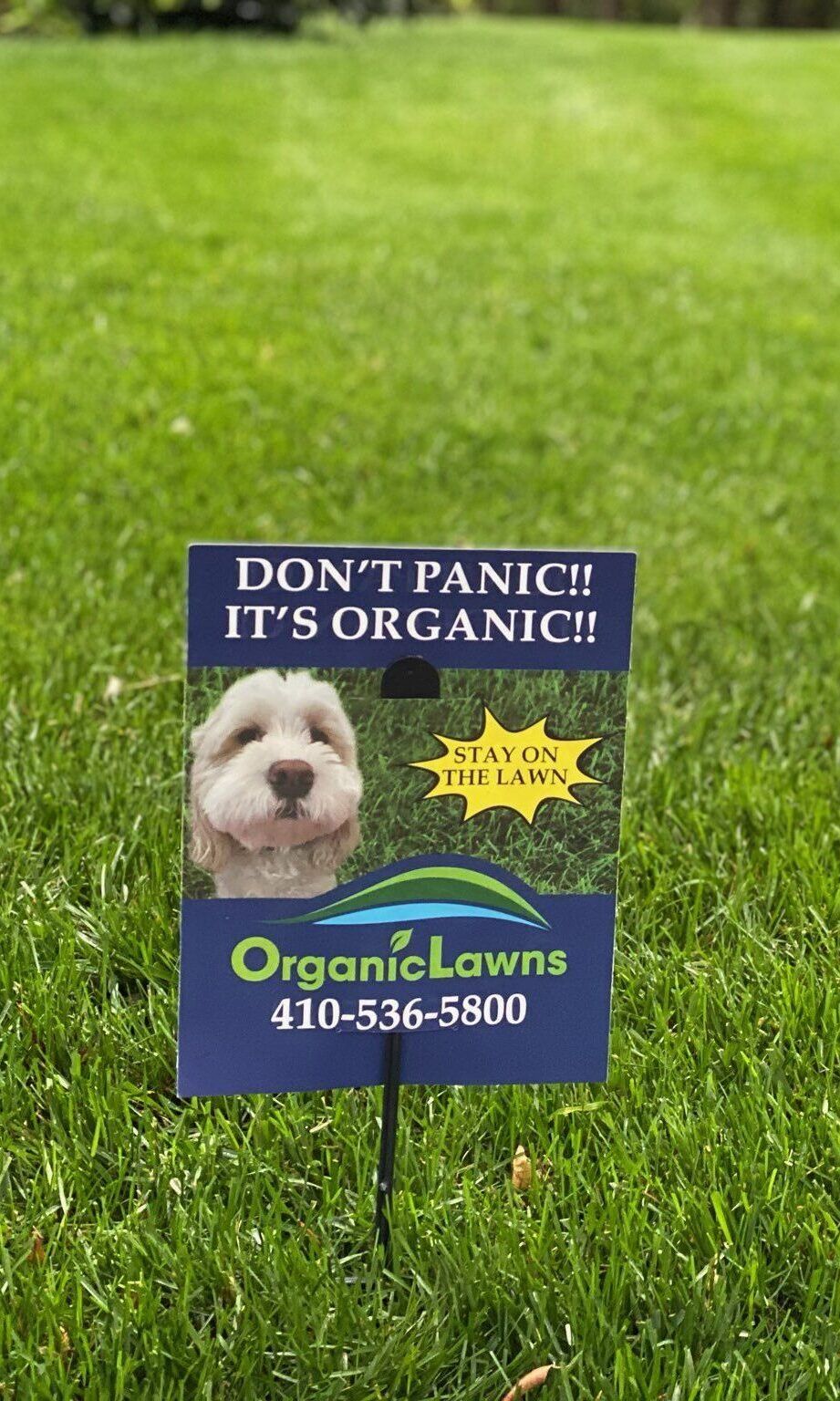
Credit: www.organiclawns.net
Hydration Stations And Shade
Setting Up Water Spots
When keeping your lawn dog-friendly, it's vital to set up designated water spots for your furry friends.
- Place shallow bowls of fresh water in strategic locations around the yard.
- Ensure the bowls are refilled daily to keep your dogs hydrated.
- Consider installing a dog water fountain for continuous access to water.
Providing Relief From The Sun
To protect your dogs from the sun's heat, create shaded areas in your yard.
- Plant trees strategically to provide natural shade throughout the day.
- Install shade sails or canopies to cover specific areas where dogs play.
- Utilize dog-friendly umbrellas for portable shade options.
Regular Lawn Maintenance With Pets
Regular Lawn Maintenance with Pets is essential for a well-kept yard that both you and your furry friends can enjoy. Keeping your lawn healthy while having pets around requires some extra care and attention.
Mowing With Dogs Around
When mowing your lawn with dogs around, ensure their safety by keeping them indoors or in a fenced area. Always inspect the yard for any toys, bones, or waste before mowing to avoid any accidents. Consider using a pet-friendly lawn mower and keep your pets away from the mowing area until it is safe.
Seasonal Lawn Care Tips
- In spring, clean up any pet waste and reseed any bare patches caused by pet traffic.
- During summer, water your lawn in the morning to prevent heat stress on your pets' paws.
- In fall, rake up leaves regularly as they can harbor pests that may harm your pets.
- During winter, limit your pets' time on the lawn to prevent damage to the grass in cold weather.

Credit: www.lawnmastersstlouis.com
Conclusion: The Joy Of A Dog-friendly Yard
Creating a dog-friendly yard is not just about the well-being of your furry friend, but also about fostering a harmonious and enjoyable outdoor space for the whole family. With the right lawn care approach, you can ensure that your yard remains lush, vibrant, and safe for your pets to roam and play. Let's reflect on the benefits and explore how to continue caring for a happy, healthy lawn that accommodates your four-legged companions.
Reflecting On The Benefits
A dog-friendly yard provides a safe environment for your pets to exercise and unwind, reducing their stress and anxiety levels. It also promotes a stronger bond between you and your furry friends, as they have a designated space to explore and play in. Moreover, a well-maintained yard enhances the overall aesthetic appeal of your property, making it a welcoming space for both humans and pets alike.
Continued Care For A Happy, Healthy Lawn
Regular maintenance and care are crucial for sustaining a dog-friendly yard. This involves proper watering, mowing, and fertilizing to ensure that the grass remains robust and resilient to the wear and tear caused by your pets. Additionally, integrated pest management techniques can help control fleas and ticks without posing harm to your four-legged companions. Implementing these measures will contribute to a thriving, pet-friendly environment that you can all enjoy.
Frequently Asked Questions
What Lawn Treatment Is Safe For Dogs?
Choose pet-friendly lawn treatments without harmful chemicals or pesticides to keep your dog safe and healthy.
Is Trugreen Ok For Dogs?
Yes, TruGreen is safe for dogs once it has dried. Keep pets off treated areas until dry.
Can I Treat My Yard If I Have Dogs?
Yes, you can treat your yard if you have dogs. However, it's important to use pet-friendly products and keep your dogs away from the treated area until it's safe for them to return. Consult with a veterinarian or lawn care professional for the safest options.
Is It Safe To Fertilize A Lawn With Dogs?
Fertilizing a lawn with dogs is safe if you choose pet-friendly, non-toxic products to avoid harm.
Can I Use Natural Remedies For Dog-friendly Lawn Care?
Yes, natural remedies like vinegar or baking soda are safe for your dog-friendly lawn.
Conclusion
Incorporating dog-friendly lawn care practices ensures a safe and healthy environment for your furry friends. By using natural fertilizers, avoiding toxic chemicals, and providing designated play areas, you can maintain a beautiful lawn while keeping your pets' well-being in mind.
Creating a pet-friendly outdoor space is achievable and beneficial for both your dogs and your lawn.


